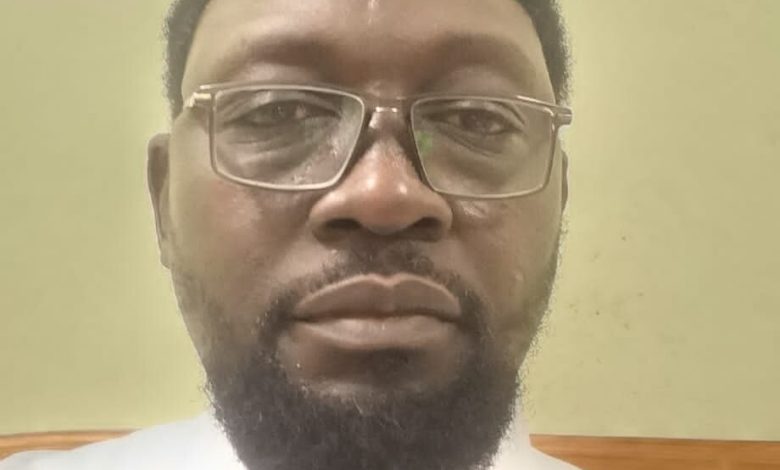Leader of the Democratic Blok, Hassan Ibrahim, in an Interview with (Sudan Events): These (…) are the sources of funding for our activities and we respect our critics

Leader of the Democratic Blok, Hassan Ibrahim, in an Interview with (Sudan Events)
The organizations that joined the Blok pulled the rug out of Hadi Idris
These (…) are the sources of funding for our activities and we respect our critics
The Democratic Blok is concerned with expanding the base of participation in Sudanese public affairs
We are the largest Blok that the Sudanese people can hope for to save them against the militia attack
The Forces of Freedom and Change (FFC) “Democratic Blok,” which is holding its preparatory sessions for its second general conference in the Egyptian capital, Cairo, during these days, announced the acceptance of a number of political organizations to join the coalition, which included the Revolutionary Awakening Council led by Musa Hilal, the Liberation Forces Gathering, and the Sudan Liberation Army Movement-Transitional Council led by Salah Rasas. . The Blok said that this comes within the framework of expanding and absorbing multiple components in Sudan and involving them in managing the political process. To talk about this step, Sudan Events conducted a dialogue with the leader of the Democratic Blok, Hassan Ibrahim Fadl, and came up with the following outcome.
Interviewed by: Aya Ibrahim
The Democratic Blok announced its agreement to accept a number of organizations to join the coalition. What can the step add?
The joining of these forces into the Democratic Blok will add a lot to the unity of Sudanese political forces regarding the current crisis.
Can we say that it is a painful blow to the militia’s supporters from some of the leaders of these forces, considering the Blok’s line of support for the army?
Yes, it is confirmation that the voices of deviants from some of the leaders of these forces fell into the embrace of the militia and began to constantly confiscate the true voice of these movements, which from day one rejected the crimes of violations by the militia. However, the leaders of these organizations were tweeting in another valley of shame and blessing of the militia’s crimes, so the honest people rose up against the leaders of those movements, some were isolated, and some split into more than one faction, and they were later united, as in the Liberation Movement, the Transitional Council. The joining of these movements is confirmation of pulling the rug from Al-Taher Hajar and Al-Hadi Idris, who remained supportive of the militia leaders.
The trend to expand participation in the coalition is a step that some consider good and others consider not?
The Democratic Blok is concerned with expanding the base of participation in public Sudanese affairs, and this is one of the reasons that has caused the rift between us and the supporters of the framework agreement. Sudan is a broad and diverse country, and its administration concerns all its people without exclusion or discrimination, and that discussion and dialogue about the Sudanese problem must be shared by everyone on an equal footing. So the Blok sought and seeks to include the largest base of believers in its approaches.
It seems that you will activate the issue of expanding the base of participation in the coalition during the coming period?
The Blok’s activities in the coming period will be to intensify communication and networking with all the people of Sudan at home and abroad to create a Blok and a broad alliance that expresses the longings and aspirations of the Sudanese people.
However, there are those who believe that your movements will not bring any benefit and will be just ink on paper. What is your comment?
Stagnant water spoils it, so any movement has an impact. It is not wise for someone to say that an activity is useless. On the contrary, what we are doing has been greatly delayed. I mean structuring the coalition and working to expand it, because today we are the largest Blok that the Sudanese people can hope to save from the attack carried out by the Rapid Support militias (RSF). Its supporters include the forces of Taqadum and others who stabbed the nation in the side, so we are confident that this movement will have a future.
Some people criticize you for holding your meetings outside the country. What would that cost?
We respect the opinion of those who criticize holding these meetings outside Sudan. Simply put, all activities related to political parties and forces should take place among the masses and within the country.
So why do you hold your meetings abroad?
Reality necessitates holding these meetings outside the country and at stations that ensure easy access to them, given that most of the leaders are outside the country due to war, displacement and asylum processes. However, one of the points that are under discussion within the Blok is that the next meetings will be inside the country.
Where does the budget for these meetings come from?
The coalition’s activities are financed through contributions from the Blok’s components, and there is no external support. This is what the Blok confirms and is strictly committed to.
Don’t you see that the displaced and others are the first to bear these costs?
Our displaced people, refugees, and all victims of war are undoubtedly more deserving of any money spent, but in the same direction, the search for eliminating the causes of the crisis is also a necessity, and therefore this spending comes within the framework of eliminating the disaster.



